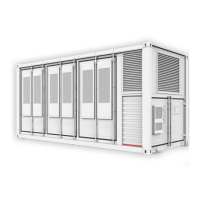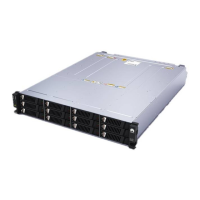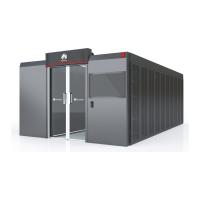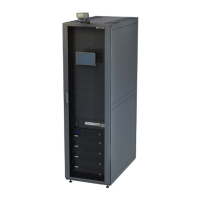● Areas prone to ood due to a dam or levee failure
● Protection areas for important water supply sources
● Protection areas for historic relics
● Populated areas, high-rise buildings, and underground buildings
● Urban intersections and high trac areas
Requirements for ood and waterlogging prevention in site selection:
● The site design elevation of a large-scale electrochemical energy storage
system (power ≥ 100 MW) should be higher than the
ood level with a
probability of 1% or the historical highest waterlogging level.
● The site design elevation of a medium- or small-scale electrochemical energy
storage system (power < 100 MW) should be higher than the ood level with
a probability of 2% or the historical highest waterlogging level.
● If the site design elevation cannot meet the preceding requirements, change
the site location or take
dierent ood and waterlogging prevention
measures based on the site requirements.
● For energy storage plants prone to wind and waves from rivers, lakes, and
seas, the elevation of ood prevention facilities should consider the wind and
wave height with a probability of 2% and an additional safety height of 0.5
m.
3.2 Space Requirements
Clearance must be reserved for installation and O&M, as required in the following:
● Reserve at least 3000 mm on the long sides and the control unit cabin side of
the ESS.
If the preceding safety distance requirements cannot be met, install re walls between
the ESSs. Ensure that the length and height of the re walls are 1 m longer than the
outline of the ESSs.
● Set up a maintenance aisle around or on one side of the container. The net
width of the aisle should be no less than 1200 mm.
● It is recommended using physical walls or fences for isolation and protection
in the energy storage equipment area. The fence should be equipped with a
door lock. The fence height should be greater than 2.2 m. Firewalls can be
substituted for part or all of the fences, depending on the actual design plans.
● The ESS must be at least 12 m away from class A production buildings, at
least 10 m away from class B production buildings, at least 10 m away from
class C, D, and E production buildings with
re resistance level 1 and 2, and at
least 12 m from production buildings with re resistance level 3. If the
external walls of adjacent buildings are non-combustible and have no doors,
windows, or combustible eaves, the
re separation distance of 3 m can be
lowered by 25%. If the preceding safety distances cannot be met, install
re
walls between the battery equipment room, ESS room, and ESS installation
area and class C, D, and E buildings. (See GB 50016 Code for
re protection
design of buildings.)
LUNA2000-2.0MWH Series Smart String ESS
User Manual 3 Site Requirements
Issue 08 (2022-11-15) Copyright © Huawei Technologies Co., Ltd. 88

